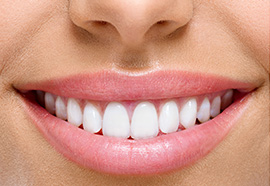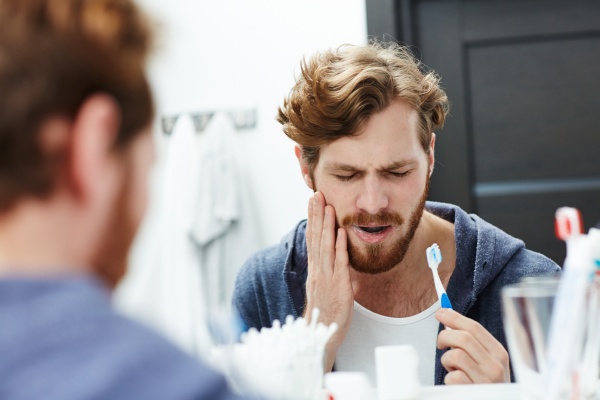YOUR BITE, HOW DO YOU KNOW THERE MAY BE SOMETHING WRONG WITH IT?

I am often asked, by my patients, if there may be something wrong with their bite. What leads them to feel or suspect that it's just not right?? As we know, our bodies are the smartest doctors we know. They are typically the first to alert us of a problem, whether we choose to listen or not. These patients' bodies are hinting for them to pay attention and perhaps do something about it! There are several signs that indicate a problem with our bite. Today I would like to share some of these with you. How would you know if you have a poor bite?
Lets begin by outlining some of the symptoms or signs that may be alerting you to a problem. You may have a poor bite if you experience any of the following:
- You grind your teeth while you sleep
- Your ears ache
- You hear ringing in your ear
- You experience pain behind your eyes
- Your jaw clicks and pops upon opening
- You experience headaches
- Your head or scalp feels painful when you touch it
- You have neck, shoulder, or back pain
- You feel dizzy
- Upon awakening in the morning your jaw muscles feel stiff, painful, or tired to the touch
- You clench your jaw muscles for long periods of time
If any of these symptoms are a regular part of your life you may want to consider a dental evaluation and comprehensive examination of your oral health. If a probable contributing factor, a thoughtful and effective treatment plan will be established to address the effects of your poor bite.
Now that we know a bit more about how to recognize the possibility of a bite problem, lets discuss the nature of Occlusal ( Bite ) Disease. Our teeth are negatively affected by three diseases:
- Cavities ( Decay )
- Periodontal ( Gum ) Disease
- Occlusal ( Bite ) Disease
Cavities and Periodontal Disease are the two most of our patients are more acquainted with. Occlusal disease does not always present itself so obviously. The effects of occlusal disease are many. Some of these inlcude:
- Wear
- Sensitivity
- Cracks
- Loose Teeth
- Breaking Teeth
- Sore Muscles
- Painful Jaw Joints
- Headaches
In its early stages, a seemingly unrelated injury such as a broken tooth may hide the underlying cause. Normal function requires our upper and lower teeth to come together, pushing against the skull. An uneven bite, missing teeth, or improperly aligned ( crooked ) teeth will cause the muscles to work harder to bring the teeth together. Clenching or grinding of these teeth will work to increase the strain imposed.
Together, my patients and I work to evaluate the current state of the bite. The information derived from the thorough evaluation and data collection serves to allow us a peek into the future. With this possible, I am able to foresee what the current bite relationship of your teeth will cause and result in years to come. To avoid the negative effects of a bad bite we strive to create an effective treatment plan designed to eliminate the symptoms and signs related to an unstable occlusal ( bite ) relationship. This treatment plan may include several phases, some of which may include:
- Orthodontics to correct the malposition of the teeth
- Replacement of missing teeth
- Surgery in advanced or more severe cases
- Bite Splint therapy
- Simple and effective reshaping of the pressure points on the teeth causing strain or interference with a stable bite
Bite Splint therapy is often one of the first steps considered in occlusal ( bite ) disease treatment. This acrylic appliance is custom made to fit snugly over your teeth and while wearing it will simulate a "perfect bite." This alone will begin to assist us in eliminating the negative effects of the poor bite condition. This exploratory phase will enable us to experience what a comfortable difference a stable, solid bite can make on your teeth, your muscles, and your jaw. Duration of bite splint therapy is determined by the severity of the condition and by the symptoms associated with it.
Keeping your teeth in maximum comfort, function, and esthetics for your entire life depends on you. Together, we can discover how to minimize and eventually eliminate the signs and symptoms of the disease. Wearing a bite splint is relaxing as it helps you feel the effects small changes have had on your bite over time as well as what it could feel like with appropriate therapy. Patients with muscle tension and pain report dramatic relief.
I am excited to deliver the appropriate care to those patients in need of immediate or longterm bite relief. Taking care of your teeth today will assure you of a "Smile You'd Be Proud To Wear...ANYWHERE"... for a lifetime to come.


